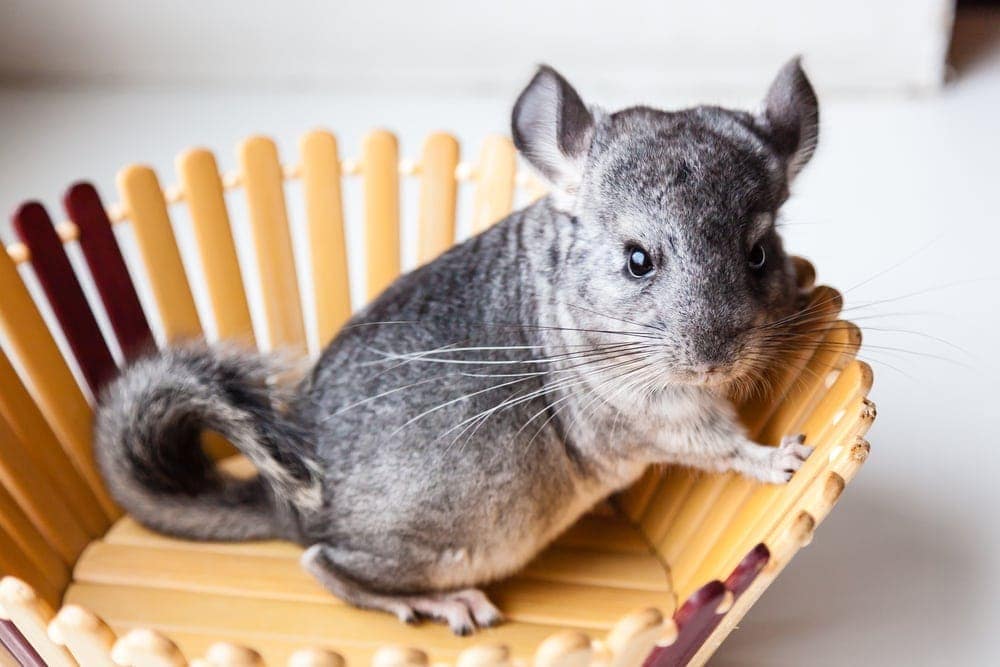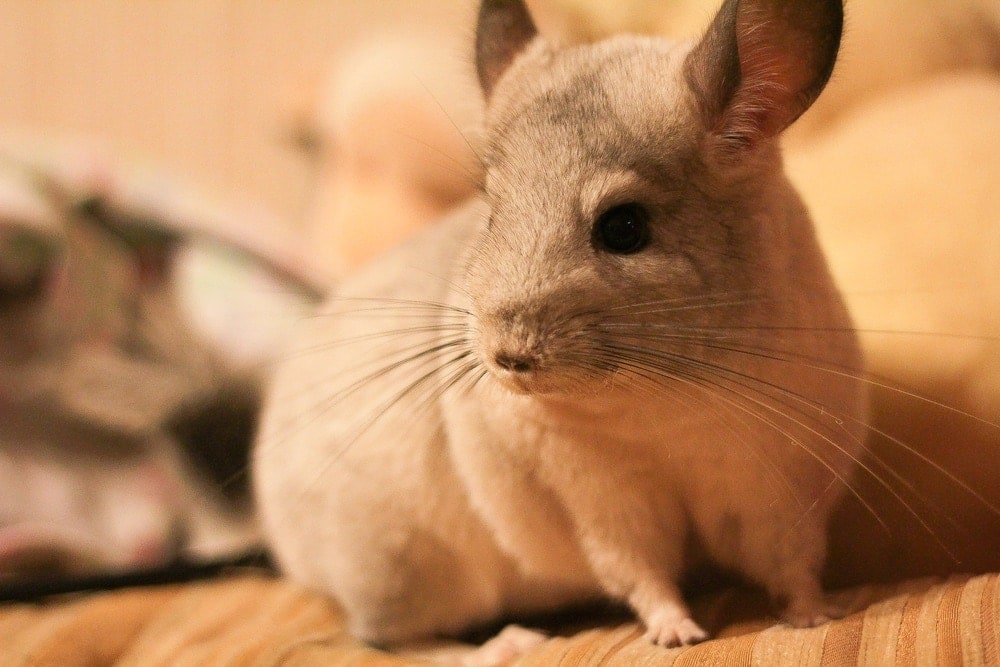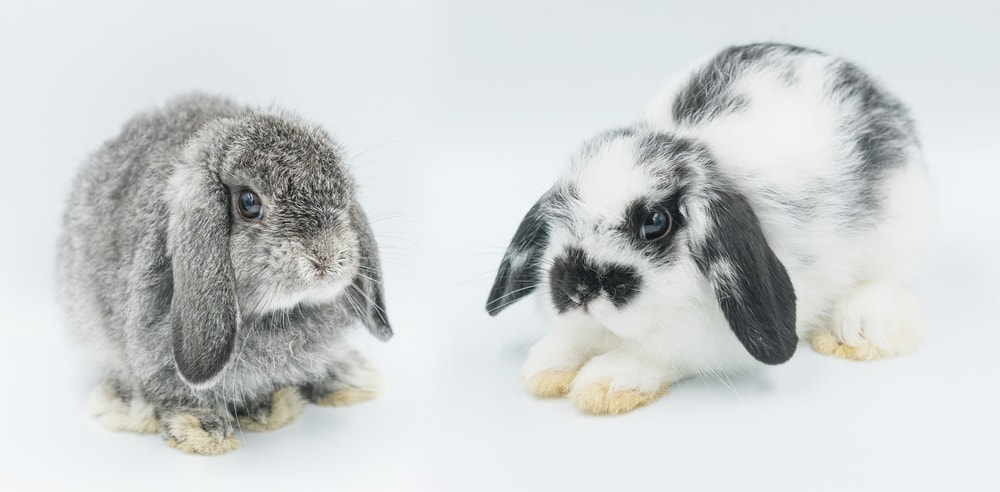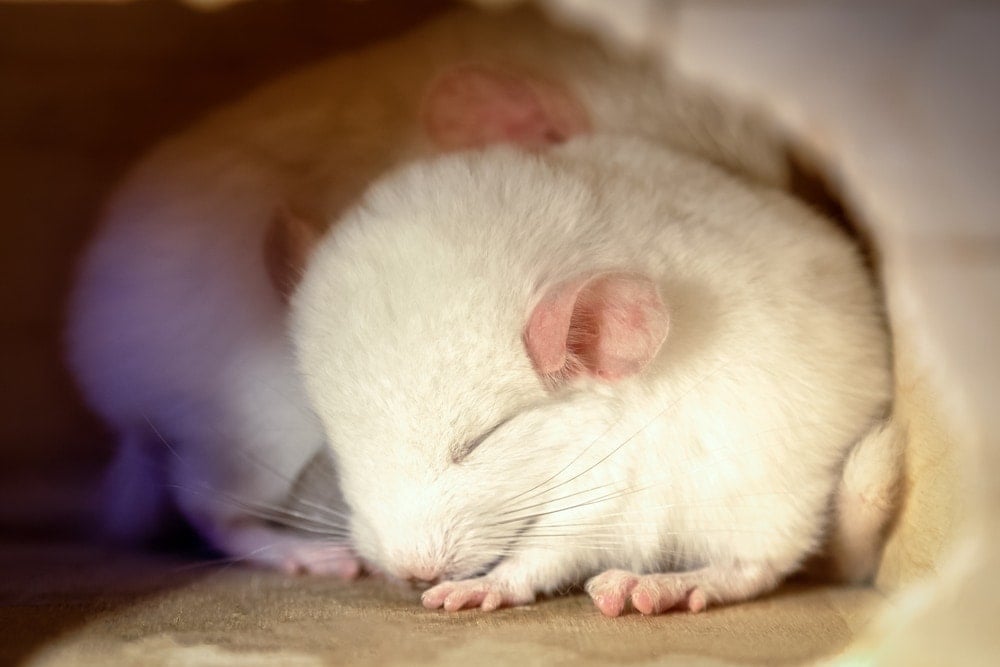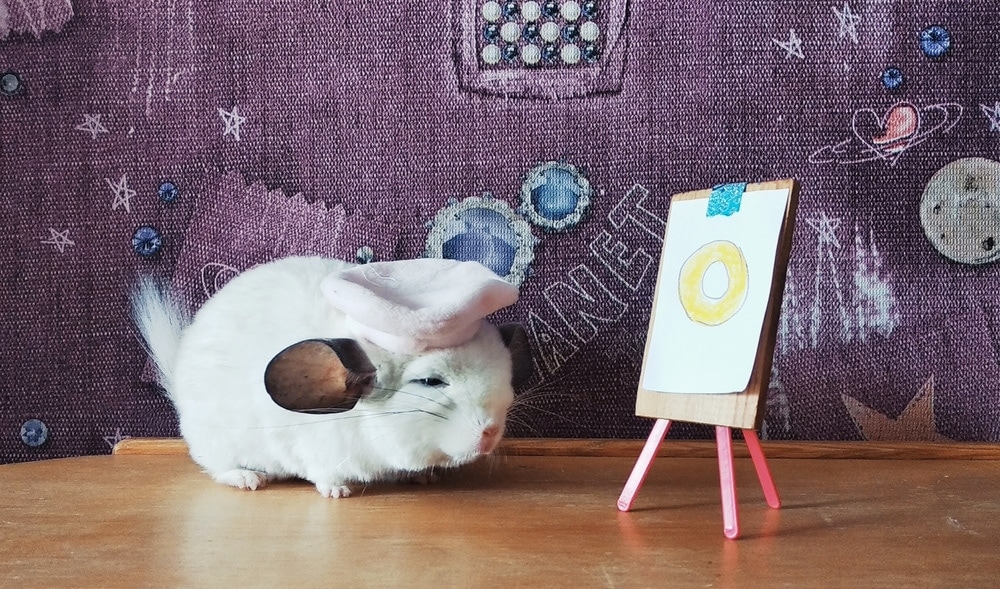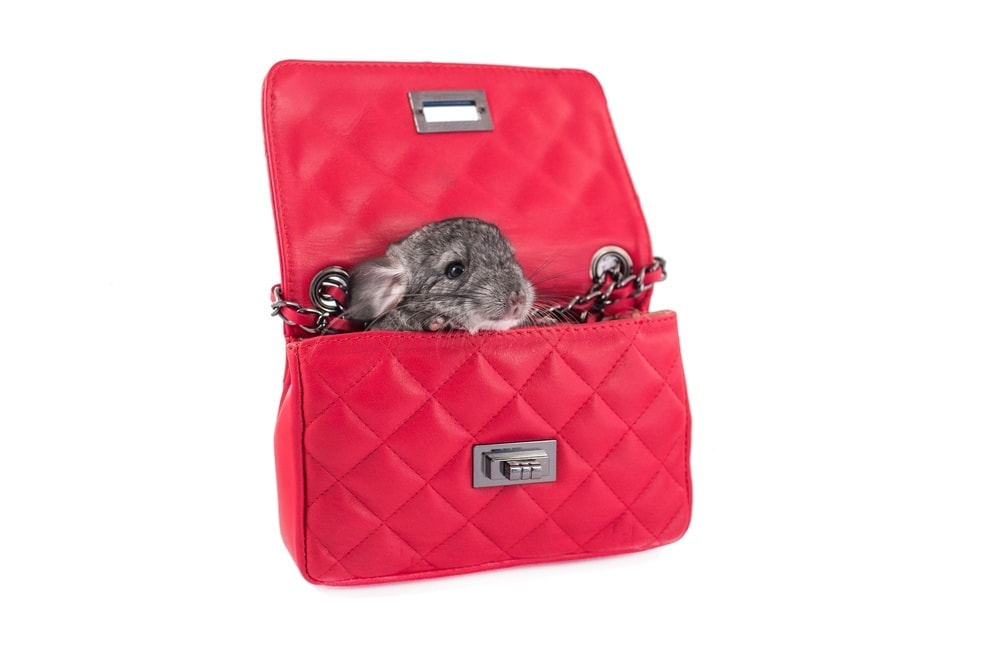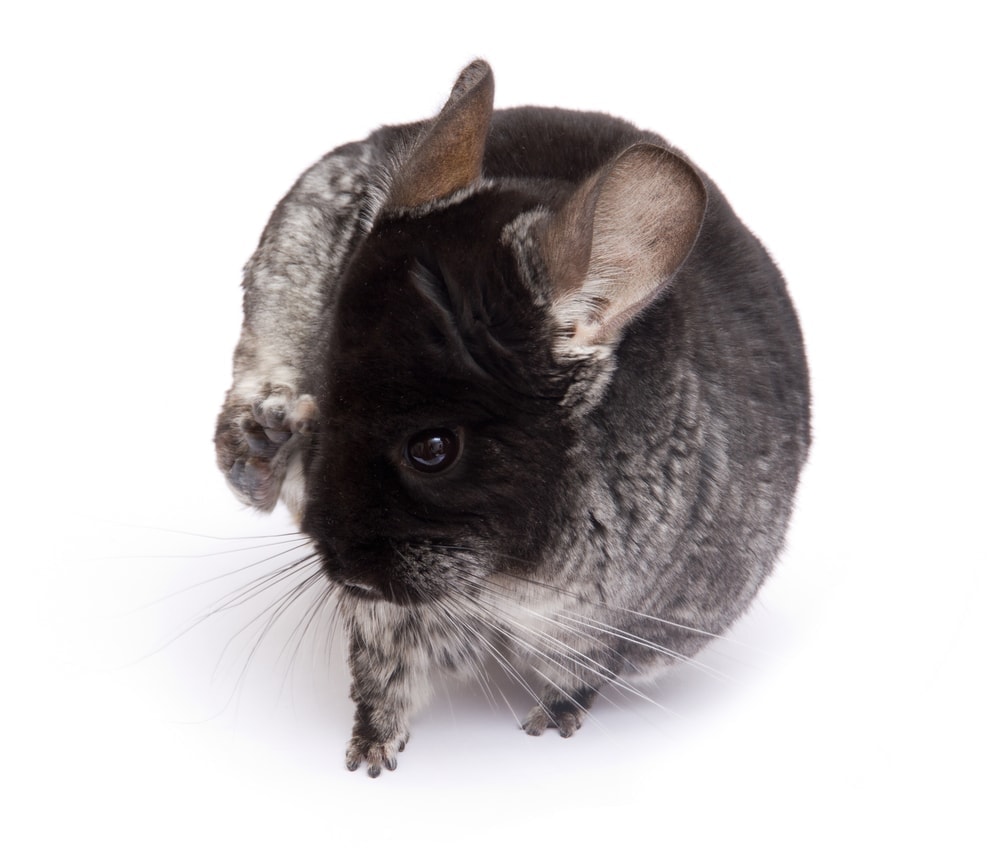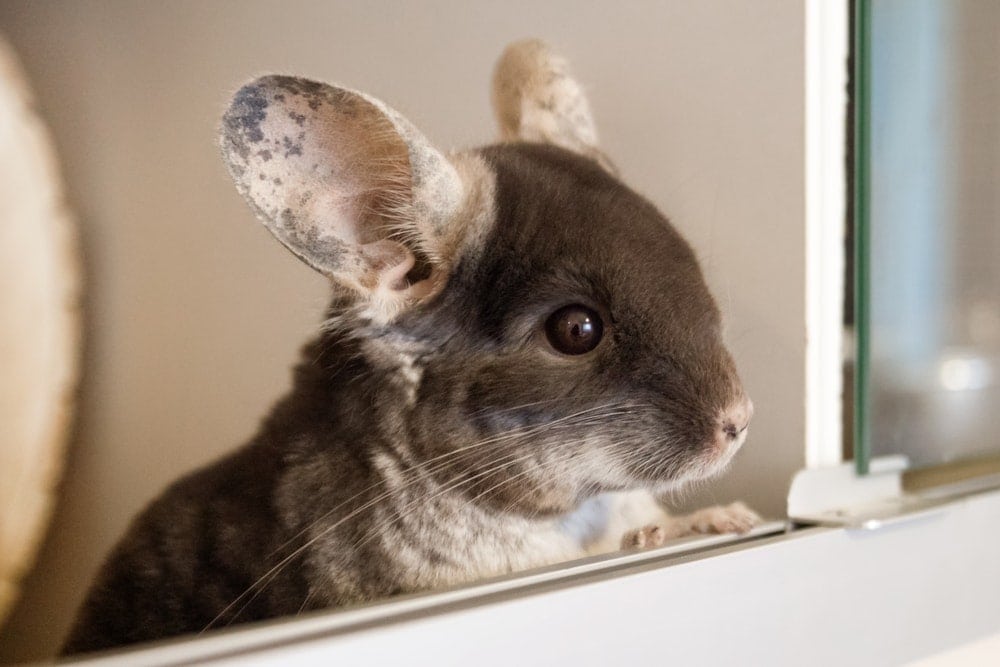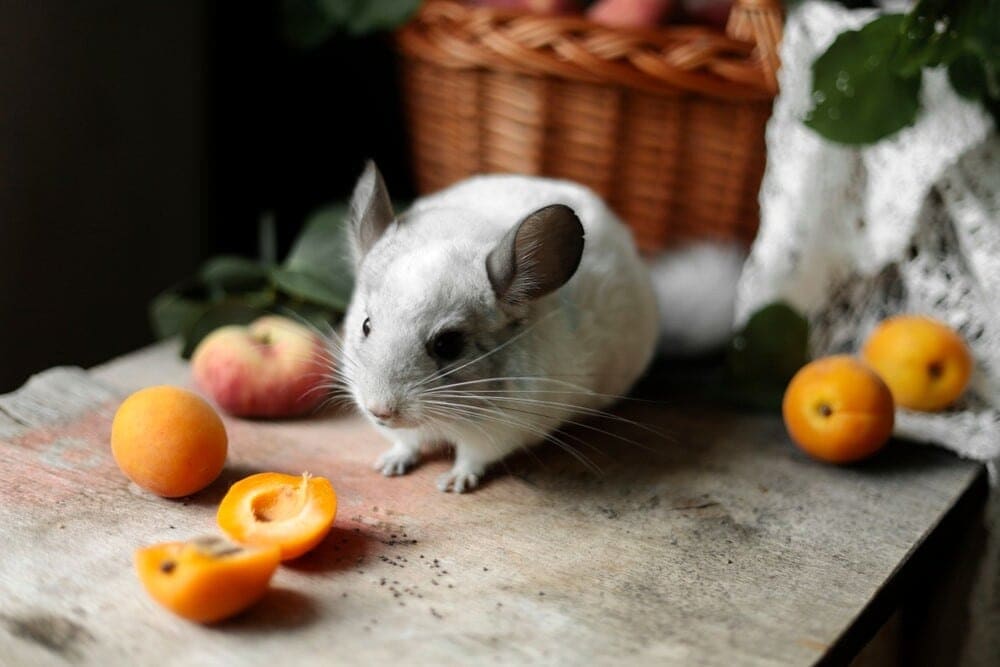Chinchillas make all sorts of different sounds, and it is important that you learn about them if you own one.
These sounds are your fluffy friend’s way of communicating. The more you understand what they are saying, the easier it will be to care for them properly.
Reasons for Your Chinchilla’s Barking
You have probably noticed your chinchilla making a sort of barking noise every so often. There are actually a number of explanations for this that you’ll want to know about.
1. They are Frightened
The most common reason that chinchillas bark is because something frightened them. This could be another animal or just a loud noise that came out of nowhere. These animals can be quite timid and easily scared.
2. They Don’t Want to be Handled
It’s also possible that your chinchilla is barking at you because it doesn’t want to be picked up or handled at the moment. If they make this sound when you put your hands around them, this is probably the case.
While these animals do enjoy being petted and held by their owners, sometimes they just aren’t in the mood. It is important that you respect this, as it will help you maintain a good relationship with your pet.
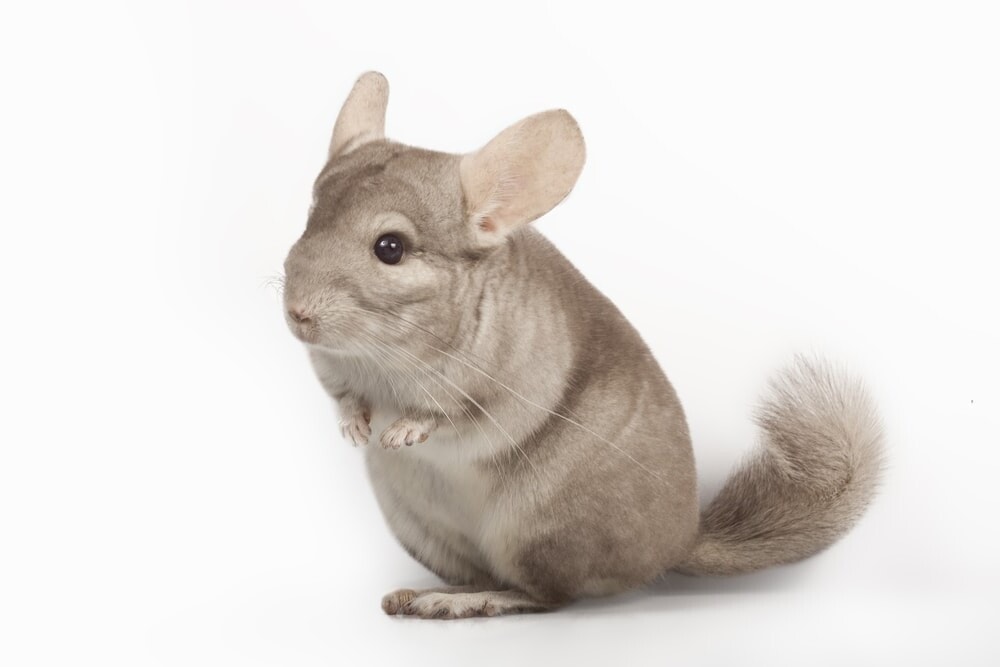
3. They are Content
Sometimes chinchillas bark just because they are content. It might not make much sense, but it’s just the nature of these animals. You might notice a gentle barking sound while they are lying down in their cage, or curled up in your hand. This is a sign that they feel comfortable around you, which is definitely a good thing.
Other Chinchilla Sounds
There are a whole range of chinchilla sounds that you should know about. The better you become at recognizing what these sounds mean, the better you will be at taking care of your fluffy pet.
1. Chattering Teeth
Most people don’t know what to make of their chinchilla’s chattering noise when they hear it for the first time. There are multiple explanations to consider. It could be a sign that your pet is scared of something. There’s also a chance that they are just cold. You might need to increase the temperature in the room a little bit. The fact is that these animals don’t do very well in cold weather.
2. Semi-bark
Sometimes chinchillas make a noise that sounds like a bark, but it’s not as long or drawn out. If you hear your pet making this noise, it probably means that they have detected a threat. This is something that these animals often do to communicate with other as a warning to the entire group.
If your chinchilla feels threatened by something in its environment, it might make this sound. It is not a cause for alarm on your part, but you might notice your pet exhibiting mild signs of distress. They should stop doing this once the perceived threat is gone. This could be anything from another pet in your home to a loud noise nearby.
3. Crying
The crying sound that chinchillas make can be described as a high pitched squealing. This particular noise is very unsettling, especially the first time you hear it.
This sound could very well mean that your chinchilla is experiencing physical pain. If they make this noise, you should check them for any external injuries or traces of blood. If they keep crying, you’ll need to get them looked at by a veterinarian who specializes in exotic pets.
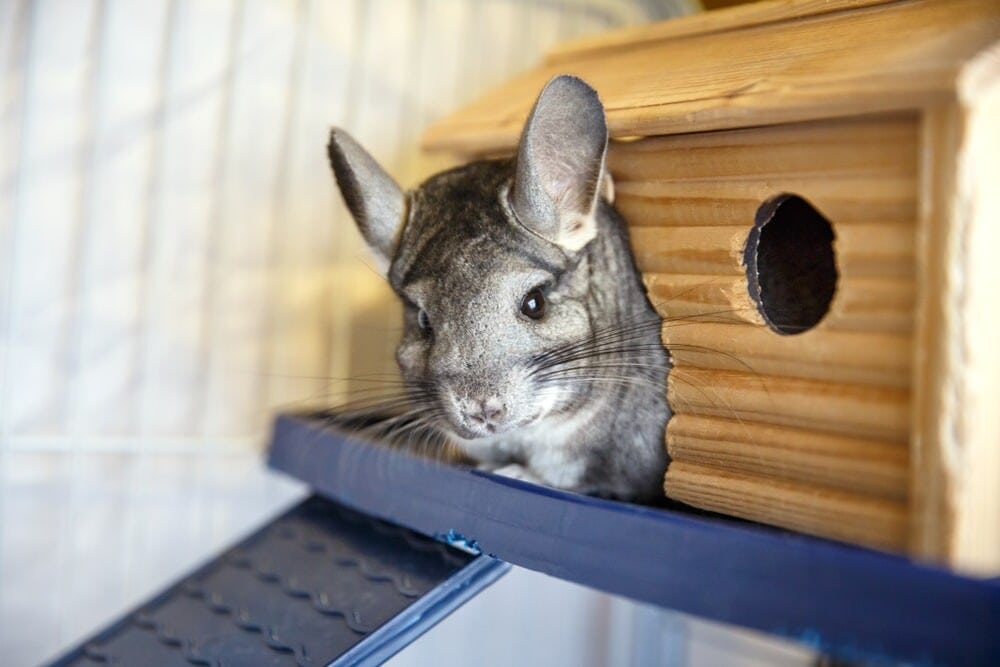
4. Cooing
Cooing is yet another sound that many chinchillas make, and it has a very positive cause. This noise means that your pet is happy, which is always a good thing. You might notice it making this sound when you are holding and/or petting them.
If you notice your chinchilla cooing while you are handling them, it means that they feel comfortable in your presence. It also means that you have most likely established a strong bond with them. Some of these animals coo more than others, but it is certainly something that you should learn to appreciate when it happens.
5. Frustrated Mom
If you have a chinchilla that has just become a mother, they might occasionally emit a long, high pitched sound. This usually happens when their babies are battling with each other over their food. This is basically the mother’s way of keeping her offspring in line. If this doesn’t work, she might get physical with them.
6. Screaming
A screaming chinchilla can be terrifying to say the least, but you shouldn’t panic. If you have a male and female chinchilla in the same cage, one or both of them might begin screaming.
This noise is usually made by the female chinchilla when its partner gets annoyed (we’ve all been there). It could be a sign that you should separate them. There is a chance that these verbal disputes could escalate to physical violence. The fact is that sometimes these animals just can’t get along together in the same enclosure.
If you notice your female chinchilla screaming a lot, you’ll probably want to put it in a different cage. This will avoid a potentially disastrous situation.
Conclusion
- Your chinchilla’s barking could be due to it being frightened by another pet in the house, or perhaps a loud noise.
- It’s also possible that your chinchilla is barking because it doesn’t want to be held at the moment.
- Some of these animals making a barking type sound when they are content.
- Chattering teeth usually means that a chinchilla is frightened or just cold.
- A long drawn out barking sound means that your chinchilla has detected a threat of some kind.
- Crying is a sound that chinchillas make when they are in pain. If this noise persists, make sure that you take your furry friend to the vet.
- A cooing sound means that your pet is happy, which you should take as a compliment.
- A high pitched squealing sound from a mother chinchilla usually means that their offspring are acting up.
- If your female chinchilla is screaming with a male in the cage, it probably means they are having a pretty serious dispute of some kind.
